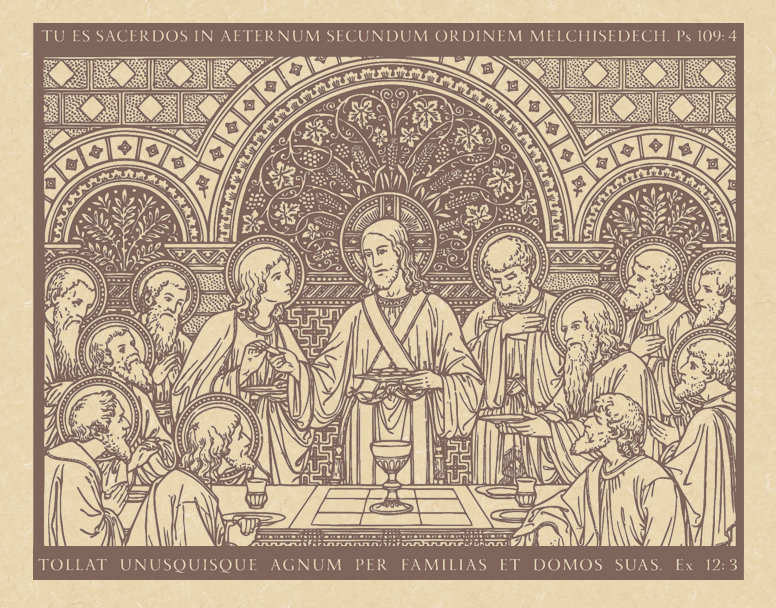What I Am Doing You Do Not Know Now.
The Thirtieth Wednesday of Ordinary Time.
Lessons from the primary feria, according to the ordinary form of the Roman Rite:
• Romans 8: 26-30.
• Psalm 13: 4-6.
• Luke 13: 22-30.
The Twentieth Wednesday after Pentecost.
Lessons from the dominica,* according to the extraordinary form of the Roman Rite:
• Ephesians 5: 15-21.
• Psalm 144: 15-16.
• John 4: 46-53.
FatherVenditti.com
|
 10:21 AM 10/30/2019 — Saint John is the evangelist who gives us the most detailed account of the Last Supper, and in that account is contained one of the most important sentences in the New Testament. When Jesus began to wash His Apostle’s feet, they are dumbfounded, Peter especially, who initially refuses to allow our Lord to wash his feet. It’s our Lord’s words to him at that moment which are so important: “What I am doing you do not know now, but afterward you will understand” (John 13: 7 RSV). That sentence is the definition of the permissive will of God. 10:21 AM 10/30/2019 — Saint John is the evangelist who gives us the most detailed account of the Last Supper, and in that account is contained one of the most important sentences in the New Testament. When Jesus began to wash His Apostle’s feet, they are dumbfounded, Peter especially, who initially refuses to allow our Lord to wash his feet. It’s our Lord’s words to him at that moment which are so important: “What I am doing you do not know now, but afterward you will understand” (John 13: 7 RSV). That sentence is the definition of the permissive will of God.
“What I am doing you do not know now….” The same thing that happened to Peter often happens to us. We often find it difficult to understand many of the things the Lord permits in our life—pain, sickness, economic difficulties, unemployment, the death of a loved one—yet, God’s plans are ordered to our eternal happiness. Peter wouldn’t really understand our Lord’s actions on that night until the time came when he, himself, was to lay down his life in Rome … which he probably wouldn’t have done without having had this lesson taught to him: that his mission, and that of all the Apostles, was one of service.
In the first lesson for today’s Mass, Saint Paul writes to the first Christians in Rome: “We know that all things work for good for those who love God, who are called according to his purpose” (Romans 8: 28 NABRE). And to that Saint Josemaría Escrivá adds, “Woes? Setbacks deriving from one thing or another? Can’t you see that this is the Will of your Father God, who is good and who loves you—loves you personally—more than all the mothers in the world can possibly love their children?” (The Forge, 929).
Trying to figure out the purpose behind the permissive will of God is always a losing proposition. What would be more profitable for us is to simply take the advice of Peter: “Cast all your worries upon him because he cares for you” (I Peter 5: 7 NABRE). That sentence, from his first epistle, could not have been written except after years of reflecting on what happened at the Last Supper, and on what our Lord said to him then, “What I am doing you do not know now….”
In a very real sense, progress in the interior life depends on learning how to live with “not knowing now,” otherwise we would be continually agitating over every little cross that comes our way, trying to second guess God. So, whenever we find ourselves beset by difficulties let us say this simple prayer: “Lord, You know better. I abandon myself into Your hands. You’ll explain it to me later on, when we meet face-to-face.”

* In the extraordinary form, on ferias outside privileged seasons, the lessons from the previous Sunday are repeated; in this case, however, these lessons were not read last Sunday, as the last Sunday in October is always the Feast of Christ the King, which had its own lessons.
|

